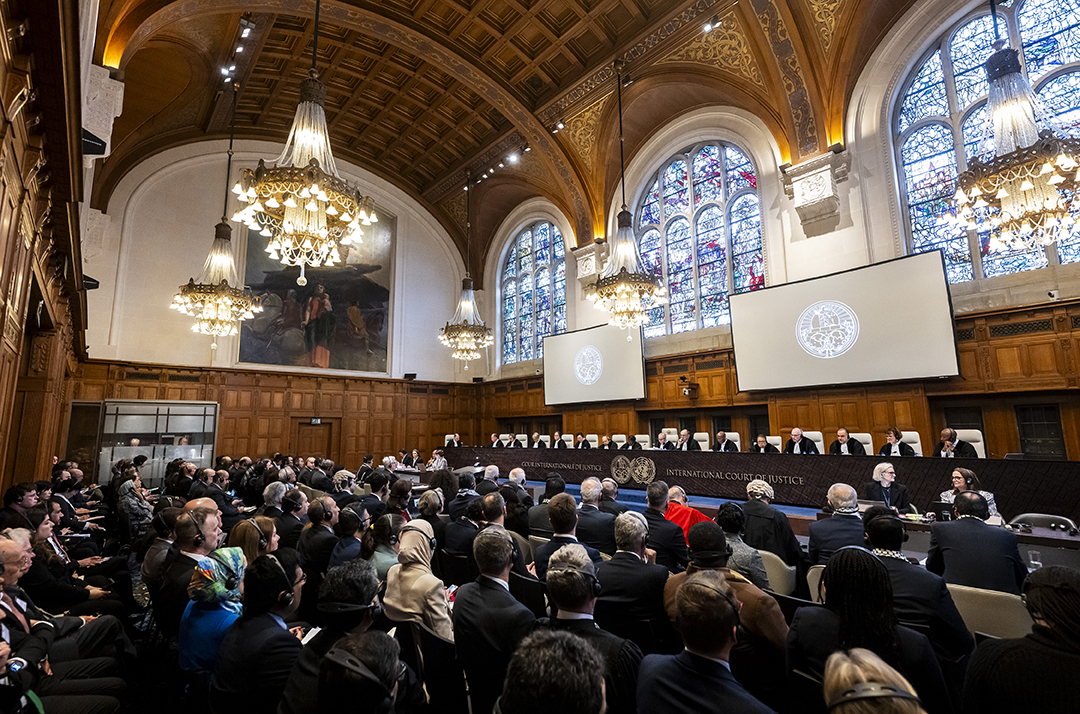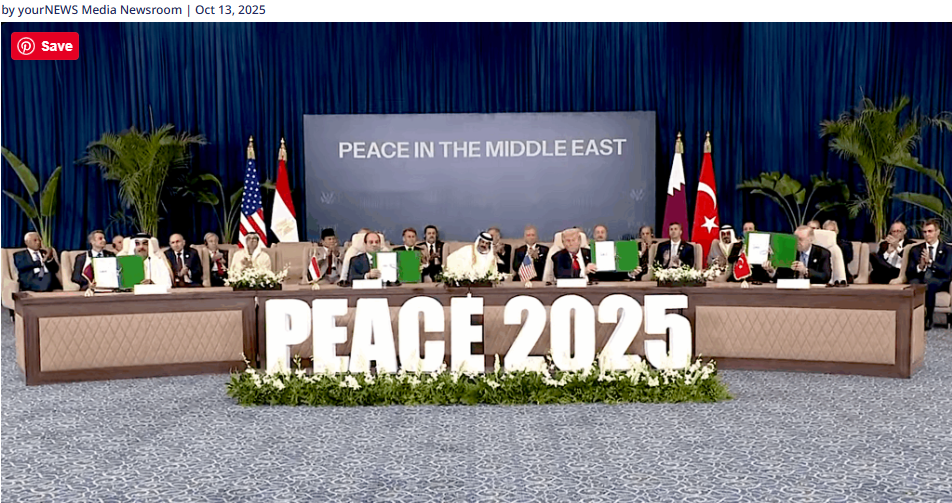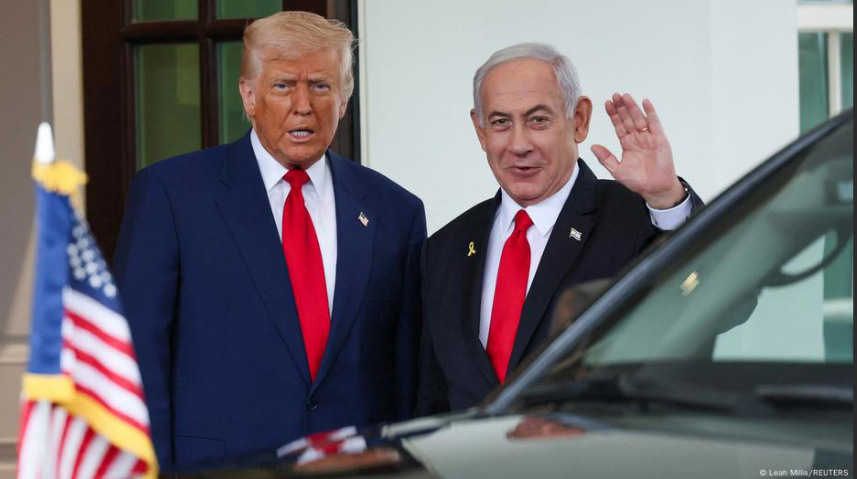Executive Summary – by Andrew Tucker, Alessandro Spinillo, Pieter Hoogendoorn, Olimpia Galiberti The Hague Initiative for International Cooperation (thinc.)
Israel is fighting a military war for its survival on seven fronts. But it is also facing a legal onslaught intended to undermine Israel’s capacity to defend itself and isolate and destroy Israel economically and diplomatically. The UN Human Rights Council (UNHRC) continues to vilify Israel and call for boycotts, while the Prosecutor of the International Criminal Court (ICC) seeks to prosecute Israeli leaders.
Most alarmingly, on 18 September, 124 UN members of the General Assembly – relying on the prior Advisory Opinion of the International Court of Justice – adopted Resolution ES-10/24 calling all states to impose boycotts, sanctions and other measures on Israel unless it unilaterally withdraws from East Jerusalem, Judea and Samaria and the Gaza Strip within twelve months and allows a Palestinian state to be established. This hostile resolution undermines international law, and threatens to unleash a global wave of boycotts, sanctions, divestments, and arms embargos against Israel.
Iran’s increasing aggression against Israel – including Iran’s role in Hamas’s October 7 attack and the ensuing Gaza war, as well as its sponsorship of terror groups in the West Bank ̶ together with the radicalization of Palestinian society and failure of the Palestinian Authority, means that Israeli unilateral withdrawal and the creation of a Palestinian state pose an existential threat to Israel and would undermine global peace and security.
Broadly speaking, peace is possible in the Middle East, only under the following conditions:
- The Iranian revolutionary regime has been defeated and Iranian- and Qatari-sponsored terror eradicated.
- The United Nations reverses its lawfare campaign against Israel, and respects Israel’s right to territorial integrity, security and political inviolability.
- The Palestinian Authority can function and govern the Palestinian people and guarantee the long-term security of the Jewish State of Israel.
The United States, and only the United States, can create those three conditions. The US can and must use its global standing to continue to secure a safe and secure future for Israel.
US action on this front has had mixed results. However, this multifront and sprawling conflict requires a new approach from the United States. It is time for a paradigm shift. At its disposal, the US has a litany of unparalleled diplomatic and other tools to accomplish these outcomes. This Report provides an overview of measures that could be implemented to achieve these goals.
1. The UN’s Attack on Israeli sovereignty
The “two states solution” has been conventional wisdom since the 1980’s. It posits that Israeli-Palestinian negotiations leading to the creation of a democratic, viable Palestinian state adjacent to Israel is necessary in order to achieve peace in the Middle East. However, most nations in the United Nations are now requiring Israel to remove its military presence and all civilians (“settlers”) from the strategic highlands of Jerusalem, Judea and Samaria – the so-called East Jerusalem and the West Bank – without negotiations, and without any security guarantees for Israel whatsoever.
Based on the International Court of Justice’s biased 19 July Advisory Opinion, the one-sided 18 September UN General Assembly Resolution ES-10/24 has called for Israeli unilateral withdrawal from the Occupied Palestinian Territory within 12 months. The resolution also demands that Israel remove all settlements and calls on all states to implement measures such as boycotts, sanctions and divestment until Israel complies.
The Advisory Opinion is highly controversial. As we recently explained in our Briefing on the Opinion, even six of the Court’s fifteen judges criticized the Opinion as biased and one-sided. This bias is reflected in Resolution 10/24, which is based on the Advisory Opinion. Four of the judges strongly disagreed with the conclusion that the occupation has become “illegal”.
This bias was the result of a deliberate manipulation of the UN system by the Islamic, Arab, African and Non-Aligned groups of states in the UN – all hostile to Western values and interests. As Judge Julia Sebutinde outlined in her Dissenting Opinion, the deliberately selective presentation of the history and law by both the General Assembly and most of the states making submissions to the Court led the majority of the Court to endorse four false legal/historical constructs. First, Israel and the Jewish people are aggressors, who have used illegitimate force to acquire territory – even though Israel was defending itself against Arab aggression in the 1967 Six Day War. Second, the territory that Israel captured from Jordan in 1967 is “Palestinian” – even though it was intended to become a Jewish homeland under the British Mandate. Third, the 1949 Armistice Lines (often misleadingly referred to as “the 1967 border”) are the border of the State of Israel – even though these lines were cease-fire lines only. Fourth, the Palestinians have been accorded an absolute (‘peremptory’) right to statehood that overrides existing agreements and the security of neighboring states — despite this characterization of peremptory being a novel concept not granted to any other people.
That the Arab and Islamic states have succeeded in their “lawfare” against Israel is also attributable to the failure of Western countries (including the US) to stand up for the truth. Most Western states did not even participate in the Advisory Opinion proceedings, and complacently allowed the resolution to be passed – despite its legal and historical revisionism and failure to condemn the horrific Hamas terrorist attack of October 7 or demand the release of hostages.
2. Why this is an Existential Threat to Israel
The UN assault on Israel must be seen in light of two other developments. Together, these are an existential threat to the survival of the Jewish State of Israel.
First, Iran’s revolutionary activities in the region, including support of Hamas and Hezbollah and its recent direct attacks on Israel, prove that the biggest threat to peace and stability in the region is Iranian-sponsored terror directed to annihilate Israel – not the Israeli occupation. Similarly, Qatar’s financial and non-financial support of Hamas has enabled and emboldened terror against Israel.
Iran is deeply embedded not only in Gaza (Iran has been Hamas’s prime sponsor) but in all the West Bank. According to the Foundation for the Defence of Democracies, there are currently 28 terror groups in the West Bank, all vying for power, many of them receiving Iranian arms and funding. The Palestinian Authority (PA) has failed to prevent and has even been complicit in terror against Israeli citizens.
Unilateral Israeli withdrawal from the West Bank would create a vacuum which would inevitably be filled by the many terror groups in the West Bank sponsored by Iran and its allies. The 1949 Armistice Lines are indefensible. The lowlands of Israel would immediately be attacked from the high mountains of Judea and Samaria.
Second, the Palestinian leadership – not just extreme groups like Hamas and Palestinian Islamic Jihad, but also the so-called moderate factions within the PLO, PA, and Fatah – has shown that its true goal is an Arab majority state in all of the territories of the former British Mandate, not to establish a peace-loving Arab state adjacent to Israel. In his speech on 26 September at the UN General Assembly, Mahmoud Abbas even claimed that Israel is an illegitimate state that should be removed from the United Nations.
The campaign to establish a Palestinian state has been driven by the PLO, which was created by the Arab League in 1964 to destroy Israel. It was taken over by Yasser Arafat’s Fatah organization in the early 1970s. To this day, the PLO Charter envisions the liberation, by means of violence, of all Palestine from the Jews ̶ “from the river to the sea”. The current “State of Palestine” is in reality the PLO acting under another name. It is a fiction. Its President Mahmoud Abbas is also head of both the PLO and its largest faction Fatah. Under Abbas, the PLO and PA have no control in Gaza, and enjoy little legitimacy in the West Bank.
The result is that Israel simply does not have a partner for peace, and the Palestinians do not have a stable, independent government that respects the rule of law.
3. The Current Administration’s Failed Policies
This Administration has pandered to the PLO/PA by holding out the promise of statehood while ignoring the corruption and threats posed by increasing Iranian-sponsored terror in the “occupied territories” in the West Bank. The seeds of the political position of the Biden/Harris Administration were planted by Barak Obama who betrayed the Jewish State by abstaining on UNSC Res. 2334 in December 2016. Vice-President Harris is likely to make it a priority to pressure Israel to achieve a Palestinian state in East Jerusalem, the West Bank (Judea and Samaria) and Gaza. The current Administration is implementing several policies that promote Palestinian statehood and undermine Israel’s sovereignty – policies that a Harris Administration is likely to continue and even expand. At the same time, the Administration has enabled Iran to become the major threat to peace and security in the region – and beyond.
- Funding UNRWA
Established in 1949, the United Nations Relief and Works Agency for Palestine Refugees (UNRWA) perpetuates the conflict because it is built on the lie that all Palestinians are refugees and have a “right of return.” The agency supports anti-Israel propaganda, teaches hatred of Israel in its schools, and there is evidence that it has been infiltrated by Hamas and other terrorist groups. The U.S. has donated $7.6 billion to UNRWA since 1950. In 2018-2020 funding was significantly reduced and then halted by the Trump administration. Since 2021, the Biden administration restored and increased funding – in total over $1 billion since 2021 ̶ making the U.S. the largest donor to UNRWA again (30% of total donations).
- Imposing Sanctions on Persons and Entities who Oppose the US Two-State Policy
Presidential Executive Order 14115, issued in February 2024 (“Imposing Certain Sanctions on Persons Undermining Peace, Security, and Stability in the West Bank”) grants wide powers to the Executive to impose sanctions and prohibit entry into the United States – without prior notice – on any person or entity it deems to have engaged in actions or that “threaten the peace, security or stability in the West Bank”. The Order is currently used to target certain Israeli “settlers”, whose conduct the Administration argues is ground for declaring a “national emergency” in the U.S. But the Order’s widely drafted provisions could enable the sanctioning of anyone who, in the sole discretion of the Secretary of State, directly or indirectly adopts actions or policies supporting Israel’s historical or legal connection to these areas or otherwise obstructs the “viability of a two-state solution”.
- Enabling Iran
While the U.S. military assisted Israel in defending itself against Iran’s missile attacks, the administration has lifted or eased sanctions—particularly those affecting oil exports to China—that were reimposed by the Trump administration. These sanctions had significantly hampered Iran’s financial capabilities to continue its nuclear, ballistic, and missile programs. The Biden administration’s easing of sanctions has allowed Iran to revitalize its missile and drone capabilities, enabling it to supply these to Russia for use in the Ukraine war while also launching attacks against Israel. In 2023, the Administration conditionally released $16 billion Iranian frozen assets, arguably allowing Iran to spend more money on Hamas, Hezbollah, the Houthi rebels and other Tehran-friendly proxies (According to Iranian President Ebrahim Raisi the money “belongs to the Iranian people, the Iranian government, so the Islamic Republic of Iran will decide what to do with this money.”)
4. A New Approach
Israel is at war with Hamas and Hezbollah in a conflict that is virtually indistinguishable from a war with Iran. This is not a territorial dispute, but an existential conflict that will determine whether Israel has a right to exist. In addition to kinetic warfare, Israel is presently enduring threats at the UN, the ICC and the ICJ. Those, too, carry massive existential weight for Israel.
Broadly speaking, peace is possible in the Middle East, only under the following conditions:
- Sponsorship of terror by Iran and Qatar has been eradicated.
- The United Nations reverses its lawfare campaign against Israel, and respects Israel’s fundamental sovereign rights to territorial integrity, security and political inviolability.
- The Palestinian Authority is able to function and govern the Palestinian people and guarantee the long-term security of the Jewish State of Israel.
The United States, and only the United States, can create those three conditions. Surveying the geopolitical landscape, it’s impossible to miss the importance of US policy to Israel. The US enjoys unparalleled diplomatic power, and her people are favorable to Israel’s cause. The US can and must use its global standing to continue to secure a safe and secure future for Israel.
As discussed, US action on this front has had mixed results. However, this multifront and sprawling conflict requires clear eyes and a new approach from the United States. It is time for a paradigm shift.
This will require leveraging US power (diplomatic, legal and military) to ensure that all Palestinian demands for increased autonomy or Israeli concessions are off the table unless and until Iran’s influence in the region has been terminated, Israel’s rights to security and territorial integrity are respected, and the Palestinian Authority can prove – beyond doubt – that it eschews terror and has abandoned ties with any state or entity that aspires to destroy the Jewish state.
At its disposal, the US has a litany of unparalleled diplomatic tools to accomplish these outcomes. Consider the following possibilities:
- Global Moral and Diplomatic Leadership. The US has led the world in insisting on the Jewish State of Israel’s right to exist. It could, for example –
- require Egypt and Jordan to publicly recommit to their peace treaties with Israel as a condition of receiving future US aid.
- work with other states to reform the government in Lebanon, contingent on that government complying with UNSC 1701 and cutting all ties with Iran and Syria.
- pressure Turkey to renew pre-October 7, 2023, relations with Israel. Threaten Turkey with economic sanctions and revocation of NATO membership if it does not do so.
- take concrete steps to implement the India to Haifa sea/land bridge project the US and EU endorsed in 2023.
- initiate an investigation into the role of Qatar in promoting and supporting terror against Israel. Demand Qatar hand over to US authorities all Hamas members living in Doha.
- United Nations Security Council Veto. The US must use its veto power to block UN actions that threaten Israel’s rights to sovereign equality, territorial integrity or political inviolability, or undermine Israel’s security.
- Measures to prevent Iranian- and Qatari-sponsored terror. The Administration could take a variety of measures to defeat sponsorship of terror by Iran, Qatar and other states, such as –
- impose sanctions on Qatar concerning Qatar’s support of acts of terror against the State of Israel and Jewish people.
- reinstate sanctions on the Islamic Republic of Iran to the level they were in place at the end of the Trump administration, including secondary sanctions to those states and companies of whatever state that acquire oil from Iran.
- redesignate the Houthis as a Foreign Terrorist Organization.
- direct the US Department of Justice and the US Department of Treasury to take all measures including civil, administrative, and criminal actions to stop the flow of funds and other forms of material support to Hamas, Hezbollah, Palestinian Islamic Jihad and all other like groups who have attacked Israel since 7 October 2023.
- Anti-boycott Measures. The Export Administration Act (EAA) in effect, primarily prohibits U.S. individuals and companies from participating in foreign state-sanctioned boycotts that are not sanctioned by the United States, such as the Arab League boycott of Israel.
- Economic Sanctions. The International Emergency Economic Powers Act (IEEPA) gives the U.S. President broad authority to impose sanctions onforeign individuals and entities in cases of an “unusual and extraordinary threat” emanating from foreign sources that poses a risk to U.S. national security, foreign policy, or economic interests. Sanctions under IEEPA may consist of cutting off access to the US banking and financial markets for foreign financial institutions and companies that decide to participate in, or adhere to, sanctions, trade restrictions of whatsoever nature, or boycotts on Israel for its alleged failure to terminate its presence in the “Occupied Palestinian Territory”.
- Military strength. The US’s might is a powerful deterrent to escalation against Israel. Furthermore, US aid and arms deals supply a huge portion of the world’s munitions. The US could eliminate all arms export limitations and increase the pace and speed of arms shipments to Israel, including replenishing all missile defense systems in real time.
- UN Influence. The US has more influence at the UN than any other nation giving it the tools to reform the anti-Israel bias in the UN system, including cutting off funding to the UN Human Rights Council (UNHRC) and UNRWA.
- Abraham Accords. The US can amend the Abraham Accords to include recognition of Israel’s sovereign rights to territorial integrity and political independence, including exercising pressure on Saudi Arabia to join the Accords forthwith.
- American policy toward Israeli occupation and settlements. The US could clarify that it does not regard the Israeli occupation of the West Bank or Israeli settlements as illegal under international law and can reverse Executive Order 14115.
- Enforce Palestinian reforms. Only the US could ensure amendment of the PLO Charter to abandon its aims of destroying Israel, and reforms of the Palestinian Authority such that the PA has abandoned its “pay-for-slay” policy and all other support for terror against Israeli citizens.



